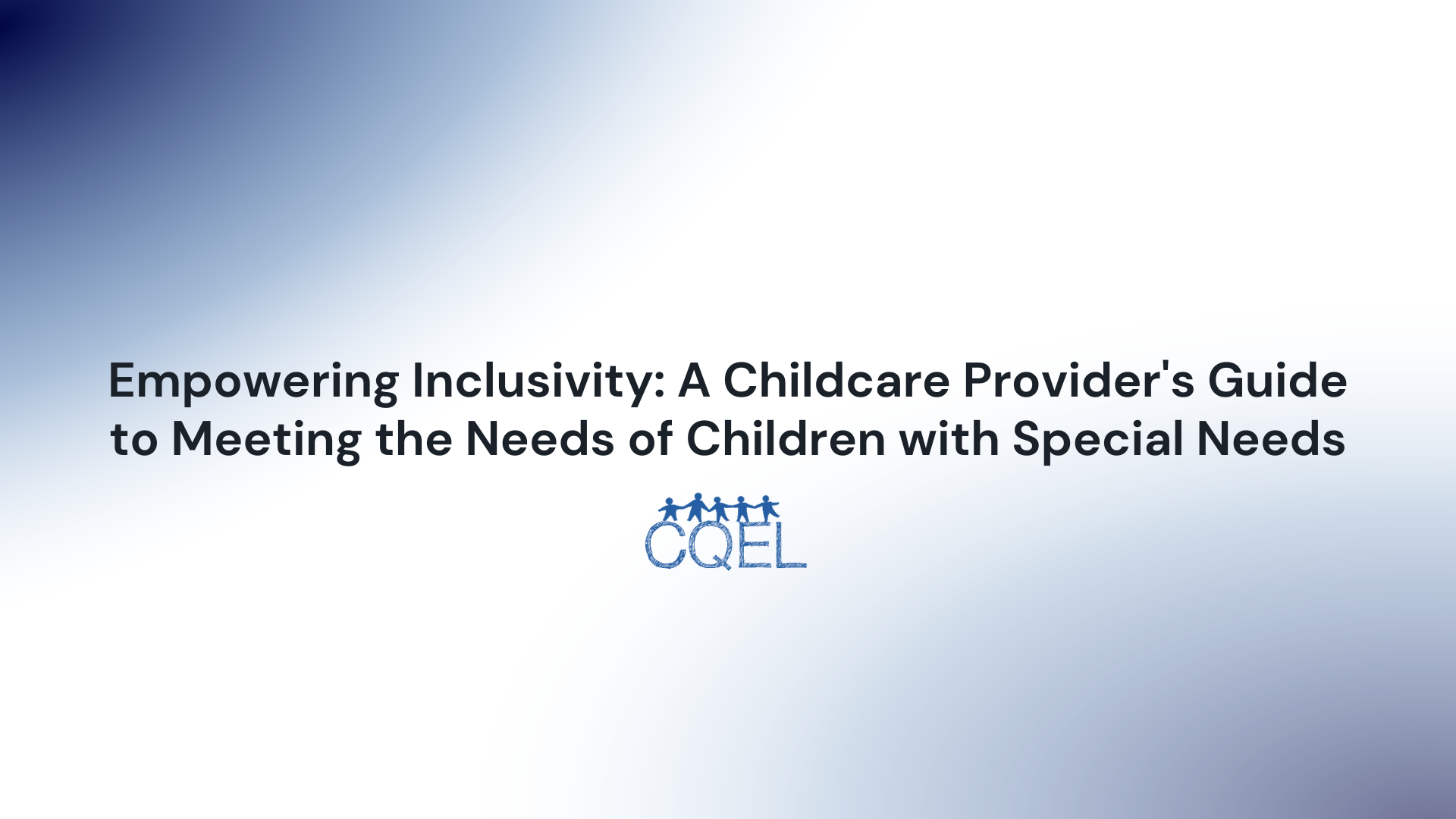Empowering Inclusivity: A Childcare Provider's Guide to Meeting the Needs of Children with Special Needs
This guide explores key strategies that can enable childcare providers to support children with special needs effectively.

Working with children with special needs is a rewarding and critical role that childcare providers play. It requires a commitment to inclusivity, empathy, and a deeper understanding of the unique needs of these children. This guide explores key strategies that can enable childcare providers to support children with special needs effectively. By leveraging these strategies, we can create a nurturing and inclusive environment where every child has an opportunity to thrive.
Understanding Special Needs
Children with special needs present a broad spectrum of different challenges and abilities, from physical disabilities to learning difficulties, emotional concerns, and developmental delays. Gaining an understanding of these special needs is the first step to providing effective care. A helpful starting point is the Center for Parent Information and Resources, which comprehensively introduces different types of special needs.
Creating an Inclusive Environment
Children with special needs should feel valued, included, and safe in your childcare center. An inclusive environment caters to diverse abilities and needs, ensuring each child can participate fully in all activities. For example, consider adding sensory play elements and adaptive play equipment suitable for children with different abilities. For more ideas on creating an inclusive environment, read "Including One, Including All: A Guide to Relationship-Based Early Childhood Inclusion" by Leslie Roffman and Todd Wanerman.
Adapting Your Teaching Approach
Teaching strategies should be adapted to fit the learning styles and needs of children with special needs. This might include using visual aids, hands-on activities, technology, and differentiated instruction. For example, using visual schedules can help children with autism understand and predict daily routines. To deepen your understanding of this, "Teaching Young Children with Disabilities in Natural Environments" by Mary Jo Noonan and Linda McCormick is a highly recommended resource.
Collaborating with Parents and Professionals
Parents, therapists, and special education professionals are crucial allies in supporting children with special needs. Regular communication with parents can provide insight into a child's interests, strengths, and challenges. Collaboration with professionals can guide developing and implementing individualized education plans (IEPs). Visit Inclusive Child Care for resources on collaborating effectively.
Offering Emotional Support and Encouragement
Children with special needs often face additional emotional challenges. A supportive and understanding environment can help children feel accepted and confident. Regularly acknowledging their efforts, progress, and achievements can boost their self-esteem. Reading "The Emotional Development of Young Children: Building an Emotion-Centered Curriculum" by Marilou Hyson can provide further insights.
Investing in Professional Development
To enhance their skills and understanding, childcare providers should take advantage of professional development opportunities focused on special needs education. This could include workshops, webinars, conferences, and courses. Resources such as the Council for Exceptional Children provide educators with a wealth of professional development opportunities and resources.
Embracing the Journey of Inclusion
Embracing the journey of inclusion enriches the fabric of our childcare centers and broadens our understanding of the world. Like all children, Children with special needs have unique abilities and potential. With empathy, patience, and the right strategies, childcare providers can create an environment where every child has the opportunity to learn, grow, and thrive.
